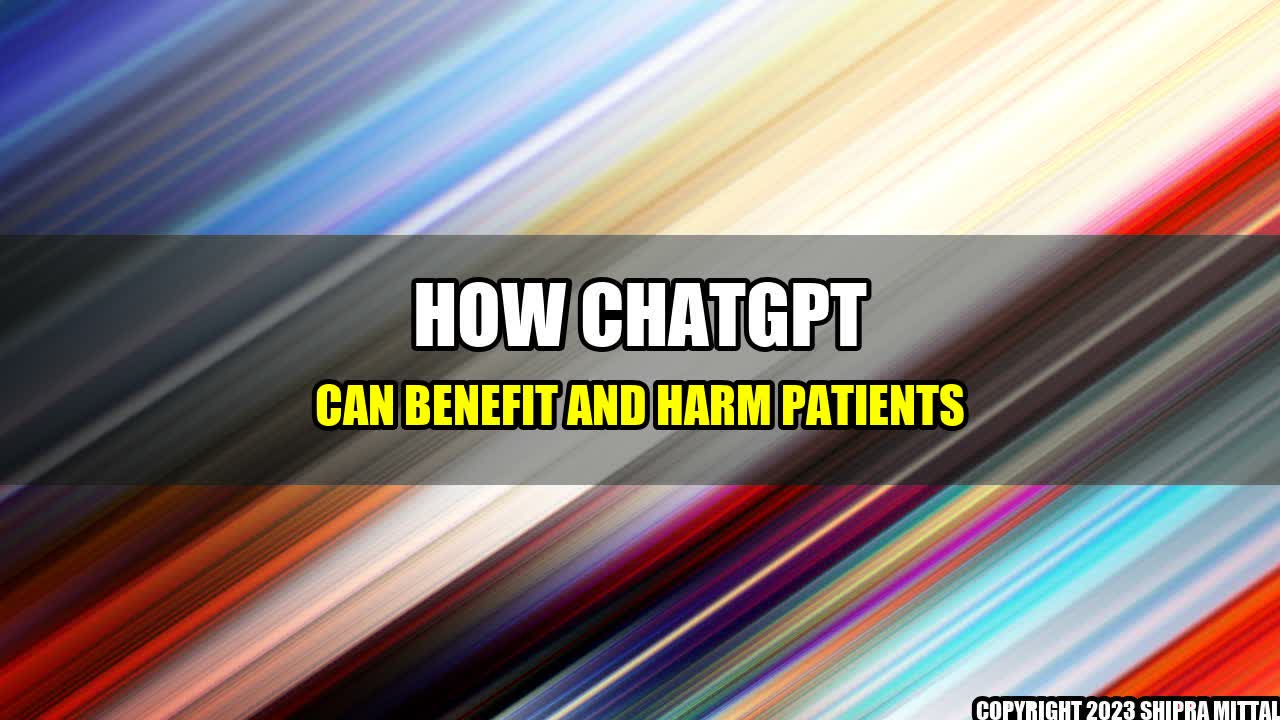The Story
Mr. Smith, a middle-aged man, was feeling unwell and decided to seek medical attention. His doctor, Dr. Johnson, was busy with other patients and unable to see him immediately. However, Dr. Johnson recommended that Mr. Smith try using ChatGPT, an intelligent chatbot designed to help patients answer health-related questions and receive guidance on treatment options. Mr. Smith used ChatGPT and was surprised at the amount of information it provided. He felt empowered to make informed decisions about his health and was satisfied with the overall experience.
The Benefits of ChatGPT
- ChatGPT can help patients receive immediate medical advice, especially in cases where doctors are unavailable.
- ChatGPT can provide reliable health information that helps patients make informed decisions about their health and lifestyle.
- ChatGPT can help doctors manage their time more efficiently and improve patient outcomes by offering personalized treatment options.
The Risks of ChatGPT
- ChatGPT may not accurately diagnose a patient's condition or offer appropriate treatment options, potentially leading to harm.
- ChatGPT may perpetuate health disparities by offering biased or incomplete information to certain patient populations.
- ChatGPT may contribute to the dehumanization of healthcare by replacing human interaction with technology.
Conclusion
- ChatGPT can be a valuable tool in enhancing the provision of healthcare services to patients, but must be used with caution to avoid any potential harm.
- Healthcare providers must ensure that ChatGPT is designed and deployed responsibly, taking into consideration potential biases or errors.
- Policymakers must regulate the use of ChatGPT to guarantee patient safety, privacy and access to quality care, and to prevent any negative impacts on healthcare staff and society as a whole.

Social
Share on Twitter Share on LinkedIn